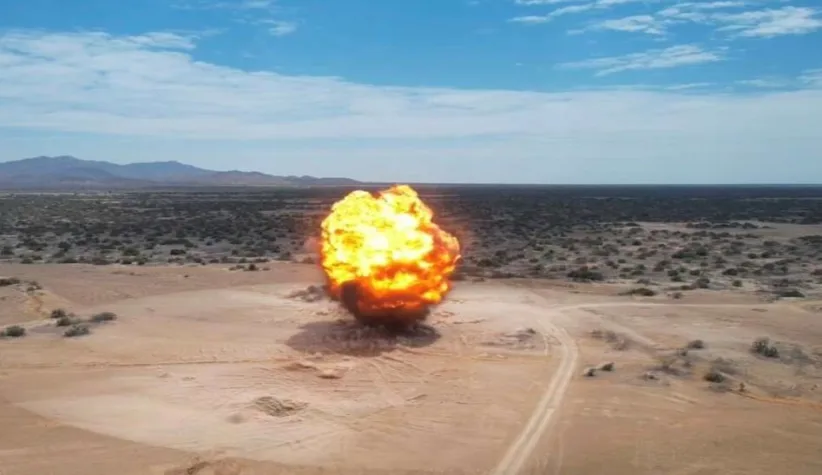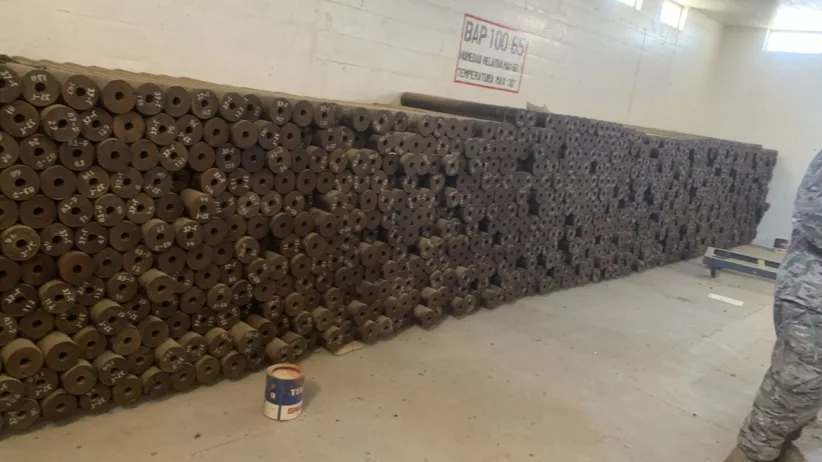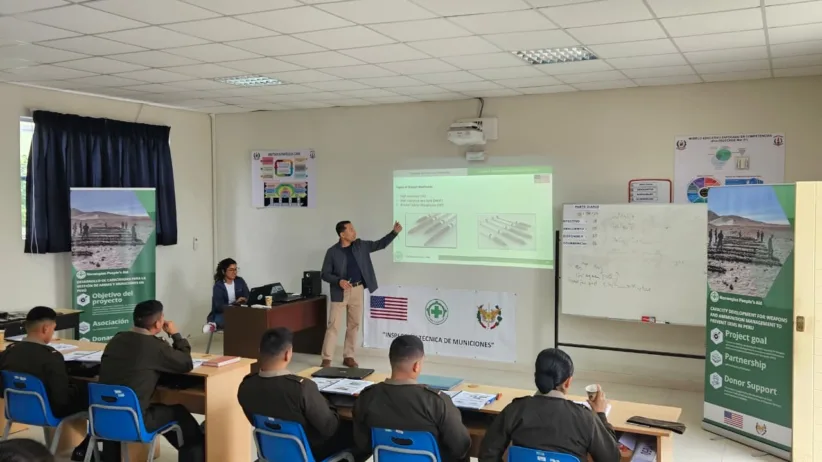NPA’s Work to Strengthen Weapons and Ammunition Management Capacity in Peru
By identifying needs, strengthening skills, and destroying obsolete and excess ammunition, NPA is helping Peru’s Armed Forces better manage their weapons stockpiles, stop illicit weapons diversion, and keep people and communities safe.

Anti-personnel mines continue to pose severe risks to civilians worldwide. For more than 30 years, NPA has been at the forefront of international efforts to address these dangers, clearing contaminated land, and returning it to productive use, while protecting communities from the devastating humanitarian impact of these weapons.
But the illicit diversion of conventional weapons and ammunition also pose serious risks. Across Latin America, as elsewhere, the diversion of weapons into illegal markets and accidental explosions at armed forces’ storage facilities are an ongoing threat to stability, and security.
Thanks to the funding from the Unites States, NPA Peru is now leading a unique initiative in the region – one that we hope will be replicated in other countries. The project, “Capacity Development for Weapons and Ammunition Management to Prevent Unplanned Explosions at Munition Sites in Peru”.

Since launching in July 2024, NPA Peru has provided technical and logistical support to its long-standing partner, the Peruvian Air Force, resulting in the safe destruction of 100 tons of obsolete and excess ammunition stored in military units. Because of their age and condition, these stockpiles represented a serious risk of accidental explosion – endangering both military personnel and the civilians living nearby. In the months ahead, NPA Peru will coordinate with the Peruvian Air Force to destroy at least the same volume of unsafe ammunition.
Yet destroying surplus stocks is only part of the solution. Lasting impact requires strengthening the Armed Forces’ own weapons and ammunition management systems.
To address this, NPA Peru has delivered seven training courses in the project’s first year, benefiting 146 personnel from the Peruvian Army, Air Force, and Navy. Participants have gained competencies based on the International Ammunition Technical Guidelines (IATG) and the Modular Small-Arms-Control Implementation Compendium (MOSAIC). Additional training sessions are planned in the coming months.

Moreover, NPA Peru has developed a comprehensive catalogue of 30 training courses that can be adapted and applied in other countries seeking to strengthen their weapons and ammunition management capacity. Some of these will be digitalized and made available through a self-paced e-learning platform, ensuring broader reach and establishing a common baseline of knowledge across different branches and levels of the armed forces.
Through this work, NPA is helping Peru stop illicit weapons diversion, strengthen security, and stability, in Peru.

We extend our sincere thanks to the United States and the U.S. Embassy in Lima for their support of NPA’s Weapons and Ammunition Management activities in Peru.

